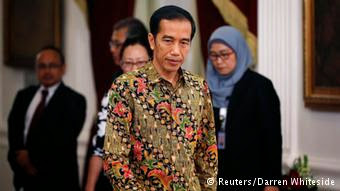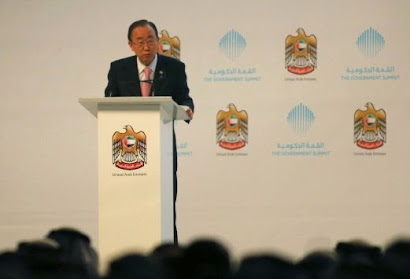Janika Gelinek, The Jakarta Post, Jakarta
The Erasmushuis (the Dutch Cultural Center) in cooperation with the Erasmus Taalcentrum (the Dutch Language Center) in Jakarta will be holding an Open House on Saturday, Dec. 1.
Starting from 11 a.m. and running until the evening, a variety of events from music to cinema will be taking place at the Dutch language center and the Dutch cultural center buildings on Jl. Rasuna Said, South Jakarta.
"It is neither an annual open house nor do we actually have a special occasion for doing it", said language coordinator of the Taalcentrum Kees Groeneboer.
"Last year the language center celebrated its 25th birthday, and the open house was a big success," he said.
"We had 1600 people come (last year). And after that we decided to do that again, this time together with the Erasmushuis, because this gives us an opportunity for an even larger event."
The Open House will start with the launch of the Indonesian translation of the children's book The Letter for the King by Tonke Dragt, which recently won an award for best Dutch children's book. The book launch will be followed by a performance from Introdans, one of top dance companies in the Netherlands.
Groeneboer says at least 2,000 people are expected to attend.
A program for children will run all day and a very special guest is expected to arrive from Europe, he said.
"One of the events regarding the Dutch culture is the visit of Santa Claus, who will come here at 1 p.m. He is coming all the way from Spain and therefore cannot make it to the opening, but I promise at 1 p.m. he'll be here."
Dutch author Kristien Hemmerechts is also scheduled to present her book and a language program will be carried out by the poet Joke van Leeuwen, who will present prose and poetry, tell stories and -- if supported by the audience -- also sing.
Later on the day, jazz musician John Hondorp will have a go on his hammond organ to mix its swinging sound with Indonesian jazz brothers Oele and Jack Pattiselanno and at the end of the day Tahera & Friends will stir up the theater with a combination of Latin and jazz.
Kees Groeneboerg says there are a few other surprises in stall for visitors.
"A lot of door gifts will be handed out ... one of the prizes will be a free Dutch course!"
All events are free of charge; for further information check the Erasmushuis Web site at www.mfa.nl/erasmushuis.









